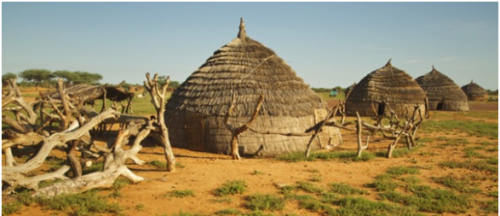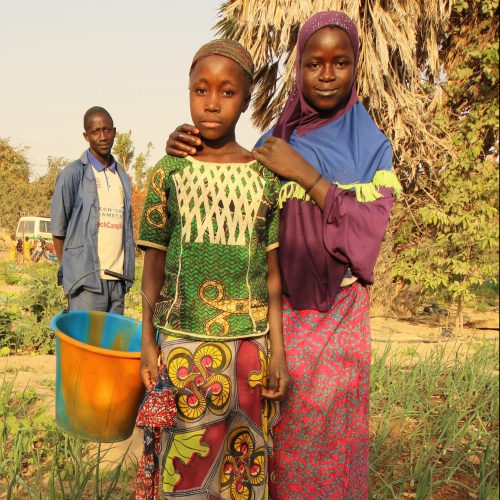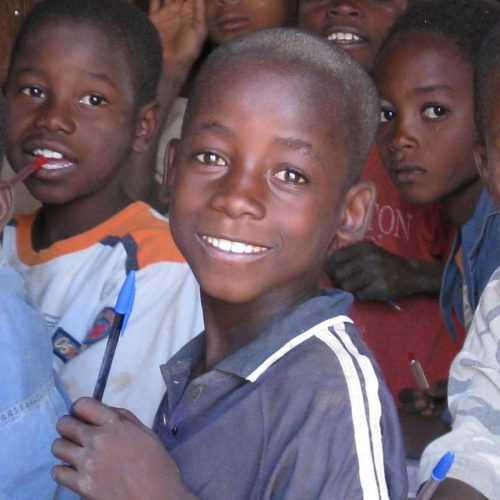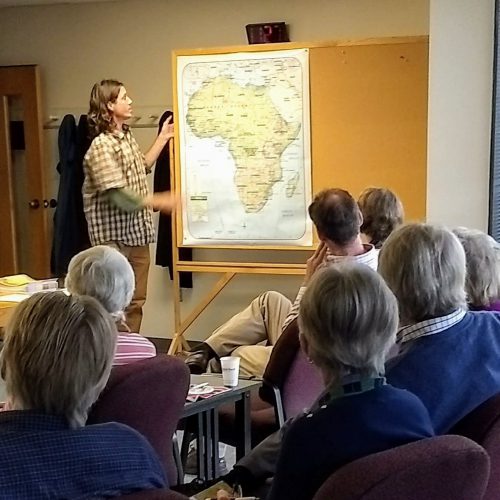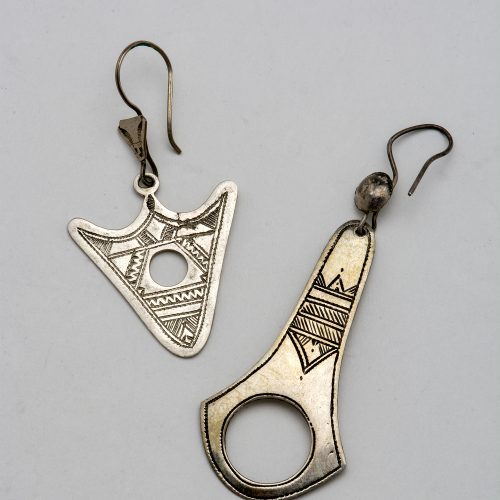Food Aid Arrives in Tillaberi Communities for Families and Local School
Brian Nowak, Niger Program Director
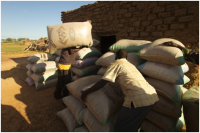
Food delivery to the temporary cereal bank.
Thanks to your help, the village of Seiga and surrounding communities in the Tillaberi region of Niger will have access to subsidized grain to help them through the end of what’s known as “the hungry season,” usually marked as a time of out-of-reach grain prices. As the entire country struggles through a serious food crisis sweeping the Sahel, everyone is waiting for their crops of millet to ripen. RAIN staff noticed families surviving on low quantities of poor quality meals, witnessing several children consuming food normally designated for the animals. Many families have been utilizing their seed stocks for food, leaving them unable to plant beans in their fields. High grain and bean prices leave families in survival strategy mode – selling assets, rationing food, living in a weakened state during the important three-month agricultural season.
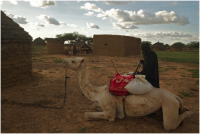
This month, RAIN funded the delivery by a local grain vendor of sixty 100kg sacs of millet and sorghum toFood transport via camel. stock a local adobe storage shed, turning it into a temporary cereal bank for the surrounding villages. A committee was formed, which includes the local school director, PTA president and head of the RAIN mentoring group, to establish a price for the grain that is less than half the market value. The aim of this strategy is to direct the generated income to support the local school, while providing access to otherwise inaccessible food. The committee has been meeting daily in preparation for the start of the school year, usually in early October. Many of the children of the families who will be purchasing the grain at the subsidized price will also be benefiting from food at school purchased from the income generated.
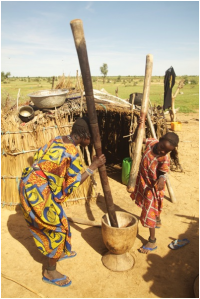
Two Belkou girls pound millet.
Along with Seiga, benefiting surrounding communities include Tooro Tondi and Belkou. The food is transported by foot, donkey and camel to homes in the five mile radius surrounding the local school. Reinforced by a new education awareness campaign led by a group of twenty RAIN mentors, the Seiga school expects to fill their first-year classroom for the first time in years, while being able to offer support to older students in their ability to succeed.
The best rainy season in forty years has the vibrant Sahelien summer looking lush and green, a strong contrast to the difficulties people in Seiga and surrounding communities face while waiting for their crops to ripen. For pastoral communities, new grass growth brings with it the hope of healthy animals, milk and a good harvest, motivating families to work even harder through the end of the season. The food support you’ve made possible during this uncertain in-between time keeps families strong and allows them to keep more of their food stocks, increasing their ability to recover from this year of crisis. The people of Seiga expressly offer their thanks for your large role in sowing a more food secure future.

